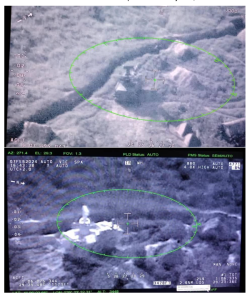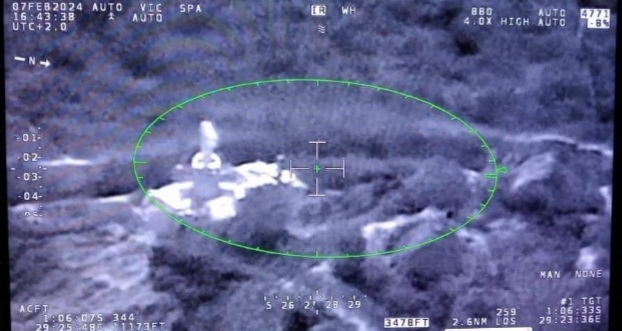The development comes at a time when Congolese forces, with support from allied troops from Tanzanian, Malawi and South Africa are battling M23 rebels in the outskirts of Sake, about 27 kms from Goma
Kigali has rebuffed calls by the United States to withdraw Rwandan forces and Surface-to-Air Missiles from the eastern Democratic Republic of Congo (DRC), saying it is taking measures to protect Rwanda from military strikes by Congolese forces.
“The Congolese political and military leadership, including President Félix Tshisekedi, has also repeatedly declared their intention to invade Rwanda and change its government by force,” said Rwanda’s Foreign Affairs Ministry in a statement released on Monday morning.
Rwanda said it “takes the threats at their word, and has adjusted our posture accordingly, adding, “This includes measures to ensure complete air defence of Rwandan territory, and to degrade offensive air capabilities, following the introduction of advanced Chinese CH-4 attack drones by DRC in 2023, and repeated violations of Rwandan air space by Congolese fighter jets.”
The United States on Saturday night condemned Rwanda’s support for the M23 armed group and called on the East African country to “immediately withdraw all Rwanda Defense Force personnel from the DRC and remove its surface-to-air missile systems, which threaten the lives of civilians, UN and other regional peacekeepers, humanitarian actors, and commercial flights in eastern DRC.”
The development comes at a time when Congolese forces, with support from allied troops from Tanzanian, Malawi and South Africa are battling M23 rebels in the outskirts of Sake, about 27 kms from Goma.
The United Nations last week reported that on February 7, a UN observation drone was targeted by Surface to Air Missiles (SAM) fired from coordinates 0.0607S 29.2548E approximately 15 miles North west of Rutshuru which is controlled by M23 rebels
Rwanda’s strongly-worded statement underscores the deteriorating relations between Rwanda and DRC, raising the prospect of an all-out armed conflict.
During the regional leaders’ mini-summit in Addis Ababa this past weekend, DRC President Felix Tshisekedi ruled out holding talks with M23 rebels, underlining his commitment to defeat the rebels on the battlefield
South Africa, which last week lost 2 soldiers in a mortar attack by suspected M23 rebels,is sending 2,900 soldiers, warplanes and artillery units to counter the insurgents
Rwanda’s concerns
Rwanda today said it was deeply concerned by the abandonment of the Luanda and Nairobi Processes by the Government of the Democratic Republic of Congo, and by the international community’s indifference to DRC’s dramatic military build-up.
“DRC has launched massive combat operations in North Kivu, in contravention of the decisions of regional mechanisms, and clearly aims to expel M23 and Congolese Tutsi civilians into neighboring countries, working in concert with the Democratic Forces for the Liberation of Rwanda (FDLR), a Rwandan ethnic militia which is directly linked to the genocide against the Tutsi in Rwanda in 1994,” Rwanda’s statement reads in part.
The U.S., in its statement on Saturday, called on the government of the DRC to “continue to support confidence building measures, including ceasing cooperation with the Democratic Forces for the Liberation of Rwanda (FDLR), an armed group named as a “negative force” by regional bodies and the government of the DRC, and which exposes the civilian population to risk.”
Rwanda today said it would seek clarification from the U.S. Government to ascertain whether its statement represents an abrupt shift in policy, or simply a lack of internal coordination.
“To characterise this genocidal and terrorist outfit merely as an “armed group named as a ‘negative force’ by regional bodies and the government of the DRC” is a shocking and cynical act of realpolitik, which calls into question the ability of the United States to serve as a credible mediator in the Great Lakes Region,’” said Rwanda.
Tshisekedi recently ordered Congolese forces to stop all forms of collaboration with FDLR.
A commander in eastern Congo who breached the presidential command was arrested
Rwanda further claimed that the “recent M23 advances are due to the DRC’s decision to expel the East African Community Regional Force in December 2023, which oversaw ceasefire and withdrawal efforts.”
DRC accuses Rwanda of helping M23 rebels to create instability in the mineral-rich eastern DRC, a claim Kigali denies.
Rwanda also observed that protecting the rights and lives of Congolese Tutsi is the responsibility of the Democratic Republic of Congo and that the consistent failure to do so has exposed the entire Great Lakes Region to thirty years of conflict and instability.
“Hundreds of thousands of Congolese Tutsi have lived as refugees in East Africa for decades, essentially forgotten. Hate speech and crude tribalism have become the currency of Congolese politics under the administration of President Félix Tshisekedi, and ethnic discrimination and targeted arrests and killings have become routine. FDLR is fully integrated into the Congolese Armed Forces (FARDC), as repeatedly documented by the UN Group of Experts,” said Rwanda.
“Taken together, these facts represent a serious threat to Rwanda’s national security. Because of that growing risk, Rwanda’s position is that the M23 issue must be resolved politically amongst Congolese. It will not be accepted for the problem to be externalised into Rwanda, by force, once again.”


